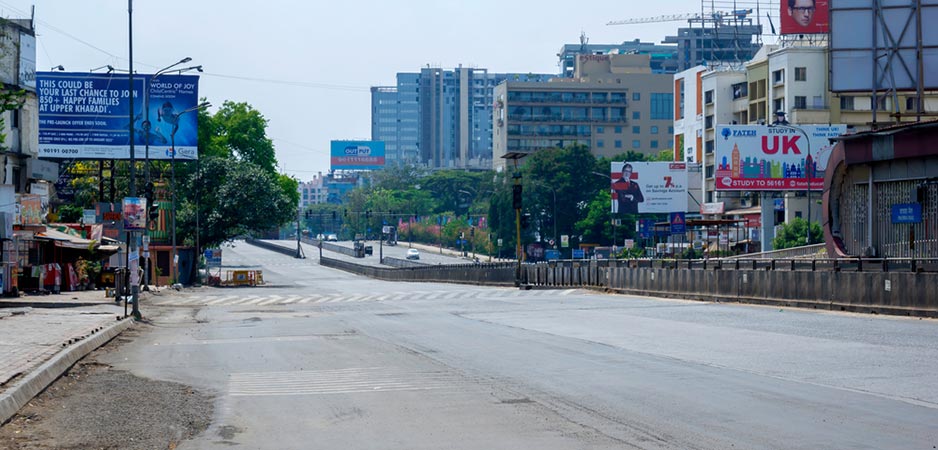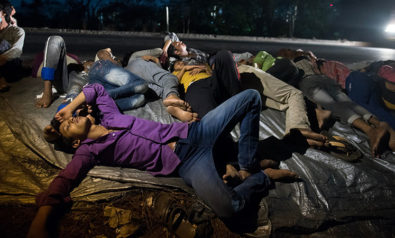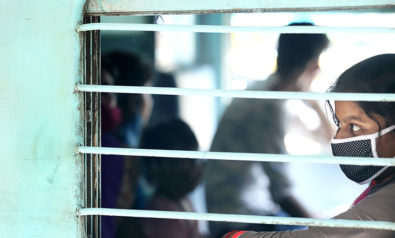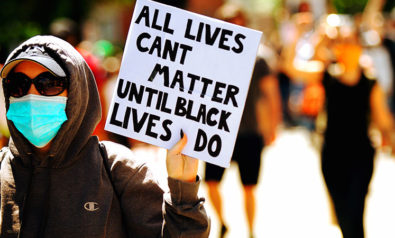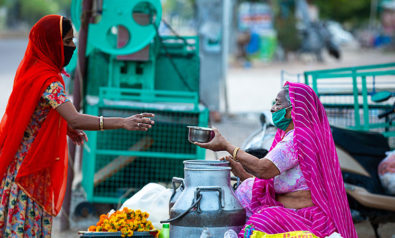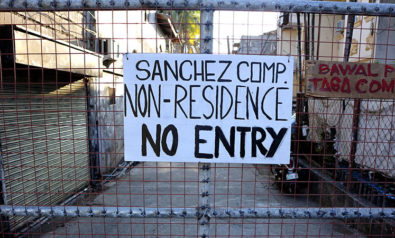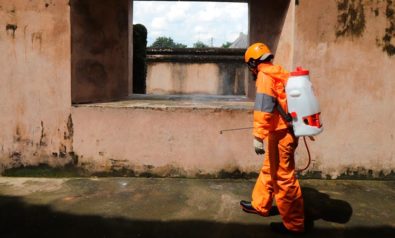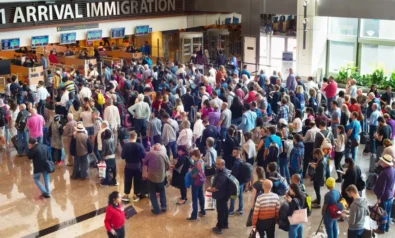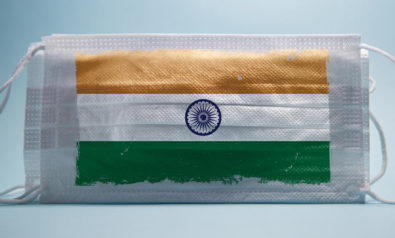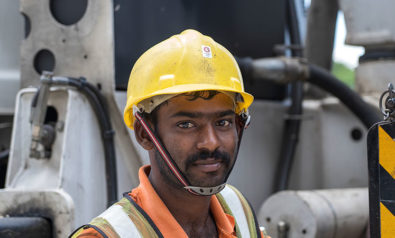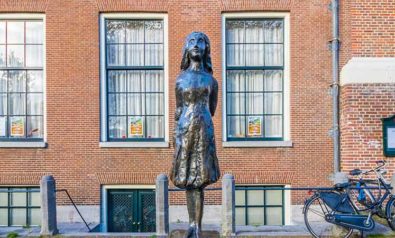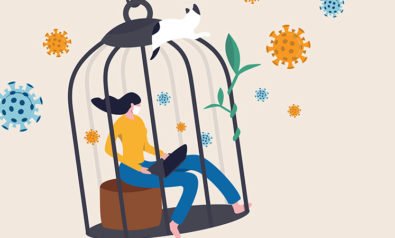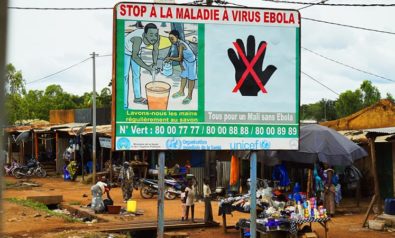In India, the ruling Bharatiya Janata Party government has a tendency for doing things like a “surgical strike.” In 2016, at just a few hours’ notice, Prime Minister Narendra Modi removed the 500 ($6.50) and 1,000 rupee notes from circulation. The move, known as demonetization, sent shockwaves throughout India and hit everyday citizens hard, particularly those who make their money in the informal sector (i.e., the untaxed part). Overnight, life savings were suddenly no longer legal tender. In 2019, tourists were suddenly evacuated by the Indian Air Force from Jammu and Kashmir. This was just before the government revoked Article 370, thus ending the special status granted to the state.
The BJP Rejects the Idea of a Hindu Rashtra
Similarly, on March 24, 2020, the government enforced a nationwide lockdown due to the coronavirus pandemic, but it was implemented without providing adequate time for citizens to prepare for it. This meant that many Indians were unable to stock up on food or, for some, to move back to their hometowns. Hundreds of thousands of migrant day laborers, many of whom live in extremely poor conditions, were stuck in their places of work with no wages as all forms of transport to their home cities came to a standstill. Modi even invoked memories of how the country faced wars in the past as a way of learning how to deal with the current crisis.
Walking Home
When I met a group of 11 migrant laborers making their way through Lucknow — the capital of the state of Uttar Pradesh, which is 500 kilometers east of Delhi — on the evening of March 28, I was told that they had been walking since March 22, the day Modi had asked Indians to observe a self-curfew. Those workers had walked almost 70 kilometers per day, and they still had a good 150 kilometers to go before they would reach their homes in Bahraich. (I have organized several peace marches and, from experience, I can tell you that it’s difficult to walk more than 20 to 30 kilometers per day for an ordinary person.)
Migrant laborers, namely those who work in different cities to their home state, walked more than a thousand kilometers to reach Bihar from New Delhi. These walks were troubling as all places to eat or drink were closed due to the lockdown. Later, the government made buses available, but a group of 14 dholak — an Indian percussion instrument — makers who were stuck in Agra found it difficult to pay the fares to reach their homes in Barabanki and Fatehpur. They had no choice but to get off the bus, and they are still stuck there.
The rush to get home made a mockery of the directive to maintain social distance to curb the spread of the novel coronavirus. It was virtually impossible for people scrambling to get onto buses to observe social distancing, which appeared to be a luxury that only rich societies could afford. In any case, the poor in India, most of whom would belong to a lower caste, have always been subjected to “social” distancing or untouchability by the upper caste elite, who would never dine with them or even allow them to sit near them at the same level.
In an attempt to prevent mass migration, the government has now stopped people from traveling, setting up relief and quarantine camps under strict police watch. There are also numerous checkpoints at state and district borders.
On April 4, in the Sitapur district of Uttar Pradesh, police put 15 men who had returned to their district in a quarantine camp established at a public school in the Chandpur Faridpur village. Yet this appeared to be an exercise of completing formalities to please the demanding chief minister, Yogi Adityanath. Four of the 15 men had returned to their village between March 23 and 28 with their families, and they had stayed there for at least eight days before they were quarantined. They were given only a mattress to sleep on by the elected head of the village in the name of support from the state. They were not even provided with masks as a precautionary measure, and their families were expected to arrange food for them.
Food Grains
The government has declared that free food grains are to be provided to people holding a particular category of a card called Antyodaya, which falls under the public distribution system (PDS). This allows 35 kilograms of subsidized food grains every month, even under normal conditions. People with job cards issued as part of the Mahatma Gandhi National Rural Employment Guarantee Act are also eligible. However, due to widespread corruption, many of those who need assistance are left out of these schemes meant for the poor. Not being registered under any of these schemes would make one ineligible to receive any free food grains.
Some 20 villagers from Chandpur Faridpur were found to be in such a situation, while 81 others from the Hardoiya Deviganj village in the Gosainganj Block of Lucknow had the other category of card dubbed “priority” under the PDS, under which they could procure five kilograms of food grains per member of the family at the rate of 2 rupees (3 cents) per kg for wheat and 3 rupees per kg for rice. Yet at a time when all means of income generation have dried up for the past few weeks, they didn’t have enough cash to buy grains at subsidized rates.
Another 13 such cardholders from Chandpur Faridpur found names of some of their family members struck off the list, reducing the number of grains entitled to them. A shop owner in the Aseni village of Barabanki district has not given up his habit of corruption even during the pandemic and charged between 20 to 100 rupees to give grains to Antyodaya cardholders, which they were supposed to get free, and charged double the amount from priority cardholders. (I filed a direct complaint with authorities over this.)
The coronavirus lockdown has hit the daily wage earners the hardest, especially those who were already struggling to make ends meet and feed their families. With only vegetable carts allowed on the streets, around 50% of new sellers who were previously engaged in some other occupations like operating battery rickshaws have now set up shop to earn some rupees. If they hadn’t done this, their families would be doomed.
Insensitive Administrations
This tragedy is further compounded by the insensitive state administrations and governments. The most glaring example is from Bareilly, a city 300 kilometers east of Delhi, where migrant workers returning home were sprayed with sodium hypochlorite disinfectant by local officials, which has led to health problems for some. An inquiry has been ordered by the district magistrate to investigate this.
Sometimes, the administrative government system behaves in unexpected ways. A Dalit social activist called Abhishek compiled a list of 41 names from his village Mataria in the Unnao district. The list, which included 20 people from the scheduled caste (the lowest in the class structure) and the rest belonging to other backward classes, all of whom were poor, was given to the commissioner of Lucknow to ensure relief could be provided to them during the lockdown. An elected village head took this as an insult for the negligence of duty on his part, and he verbally abused Abhishek. When he escaped to Lucknow, the village official caught hold of Abhishek’s uncle and beat him up mercilessly. After trying to provide relief to hapless co-villagers, Abhishek’s family now lives in fear of the village head.
The Indian government is imitating decisions of developed countries and has failed to realize that working from home, maintaining social (or physical) distance, wearing masks and using hand sanitizer every now and then is not possible for the vast majority of the poor in India. Their lives, marred by poverty, will be devastated because of the lockdown, and the government is not doing enough to alleviate the hardships they are facing.
The views expressed in this article are the author’s own and do not necessarily reflect Fair Observer’s editorial policy.
Support Fair Observer
We rely on your support for our independence, diversity and quality.
For more than 10 years, Fair Observer has been free, fair and independent. No billionaire owns us, no advertisers control us. We are a reader-supported nonprofit. Unlike many other publications, we keep our content free for readers regardless of where they live or whether they can afford to pay. We have no paywalls and no ads.
In the post-truth era of fake news, echo chambers and filter bubbles, we publish a plurality of perspectives from around the world. Anyone can publish with us, but everyone goes through a rigorous editorial process. So, you get fact-checked, well-reasoned content instead of noise.
We publish 2,500+ voices from 90+ countries. We also conduct education and training programs
on subjects ranging from digital media and journalism to writing and critical thinking. This
doesn’t come cheap. Servers, editors, trainers and web developers cost
money.
Please consider supporting us on a regular basis as a recurring donor or a
sustaining member.
Will you support FO’s journalism?
We rely on your support for our independence, diversity and quality.


